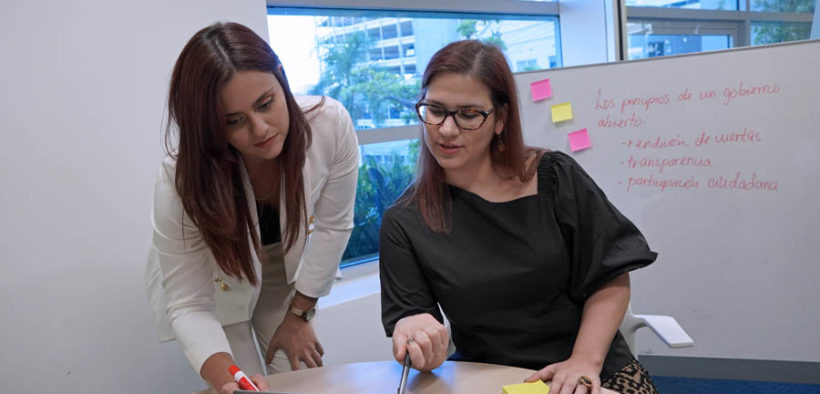Study shows lack of controls exposes $3B in public funds to corruption

A study released by nonprofit organization Sembrando Sentido identified several weaknesses in government contracting, exposing up to $3 billion to misuse and corruption, and resulting in the deterioration of essential services.
The “Evaluation of Public Procurement Processes in Puerto Rico” analysis points at how numerous inconsistencies and lack of controls reduces the efficiency and integrity in the use of public funds in procurement procedures.
According to the study, contracting mechanisms such as public-private partnerships (P3s) and professional services lack transparency and robust competitive requirements.
“These weaknesses are more profound in P3 processes, which provide a high-level of discretion toward direct contracting without competition. In addition, the contracting structure that the P3s have, make it possible to offer multiple benefits to proponents of proposals that were not solicited, in multimillion-dollar transactions with a great impact in services such as energy, transportation, infrastructure, etc.,” the study concluded.
According to the study, although the Office of Management and Budget’s (OGP, in Spanish) budget data points to 20% of spending on contracts, the Comptroller’s Office Contracts Registry indicates that on average, $13.5 billion per fiscal year are committed to contracts (and their amendments), equivalent to about 50% of Puerto Rico’s annual budget.
The study also points to the misuse of past states of emergencies to address foreseeable needs without rigorous planning or true competition.
“It’s not a coincidence that the most scandalous corruption cases, such as Apex and Cobra, took place during states of emergencies, because the standards of transparency and competition are easily bent. Five years after hurricanes Irma and Maria and the Government has yet to change its ways,” said Issel Masses, executive director of Sembrando Sentido.
“Weaknesses in planning resulting in unjustified emergency procurement continue to happen, such as the case with the recent emergency procurement scandals of air ventilators in schools and repairs to a cemetery in the Municipality of Lares,” she said.
The report states that there is an “excessive number of laws and regulations that create confusion and inconsistencies in the bidding processes and contracting,” with more than 52 laws and 110 regulations related to public contracting in Puerto Rico, 79 of which are fundamental to the system and only one that applies to all public entities.
In addition, most laws and regulations are not up to date, creating loopholes that often result in greater errors or the manipulation of due processes to avoid competition and integrity in contracting, the analysis revealed.
The evaluation also showed that professional services, which represent at least 9% of public spending, and waste management contracts, which represent 18.7% of the total required in municipal contracting, lack requirements to promote competition and a level playing field.
“Even those service types that do require competition, have about 29 exceptional circumstances that exempt the purchase from its due competitive process,” it noted.
Meanwhile, the evaluation calls attention to some strengths such as the Executive Branch’s procurement reform with specific proceedings that work to suspend or eliminate a contractor from the registry of bidders when they violate the terms and conditions in their contracts.
Additionally, the evaluation also identified an increase in open and transparent opportunities as well as in training to the private sector, promoted by the Puerto Rico General Services Administration (ASG, in Spanish).
“However, these improvements are far from sufficient,” according to the document.
‘Persisting distrust’
The study included private sector surveys and interviews that showed a persisting distrust in the public procurement system, described as “bureaucratic.”
About 60% of contractors who completed a private sector survey confirmed it has been extremely difficult to learn about procurement opportunities.
An estimated 71.4% of those surveyed confirmed past challenges getting paid after delivering the contracted goods or services.
Almost half of those surveyed believe that to secure government contracts, it is necessary to have close relationships with public officials who make decisions, that it is necessary to participate in political events, or that they must offer private benefits to public servants.
In addition to the challenges identified before and during the tender phases, Sembrando Sentido found that contract management accountability is hampered by a permissive legal framework.
For example, although the Comptroller’s Office conducts municipal audits every two years, the new Municipal Code extends the minimum number of audits to once every five years.
“This represents a great risk to public integrity, especially considering the lack of transparency and preventive monitoring in public contracting,” Masses said.
Transparency is extremely weak, with more than 56 government portals disclosing incomplete, unintegrated, and poor-quality information on contracting, the study reflected.
“This decentralization of information, which generally does not include the disclosure of subcontracts or purchase orders, makes it almost impossible to know something as simple as how much is spent on public procurement,” she said.












